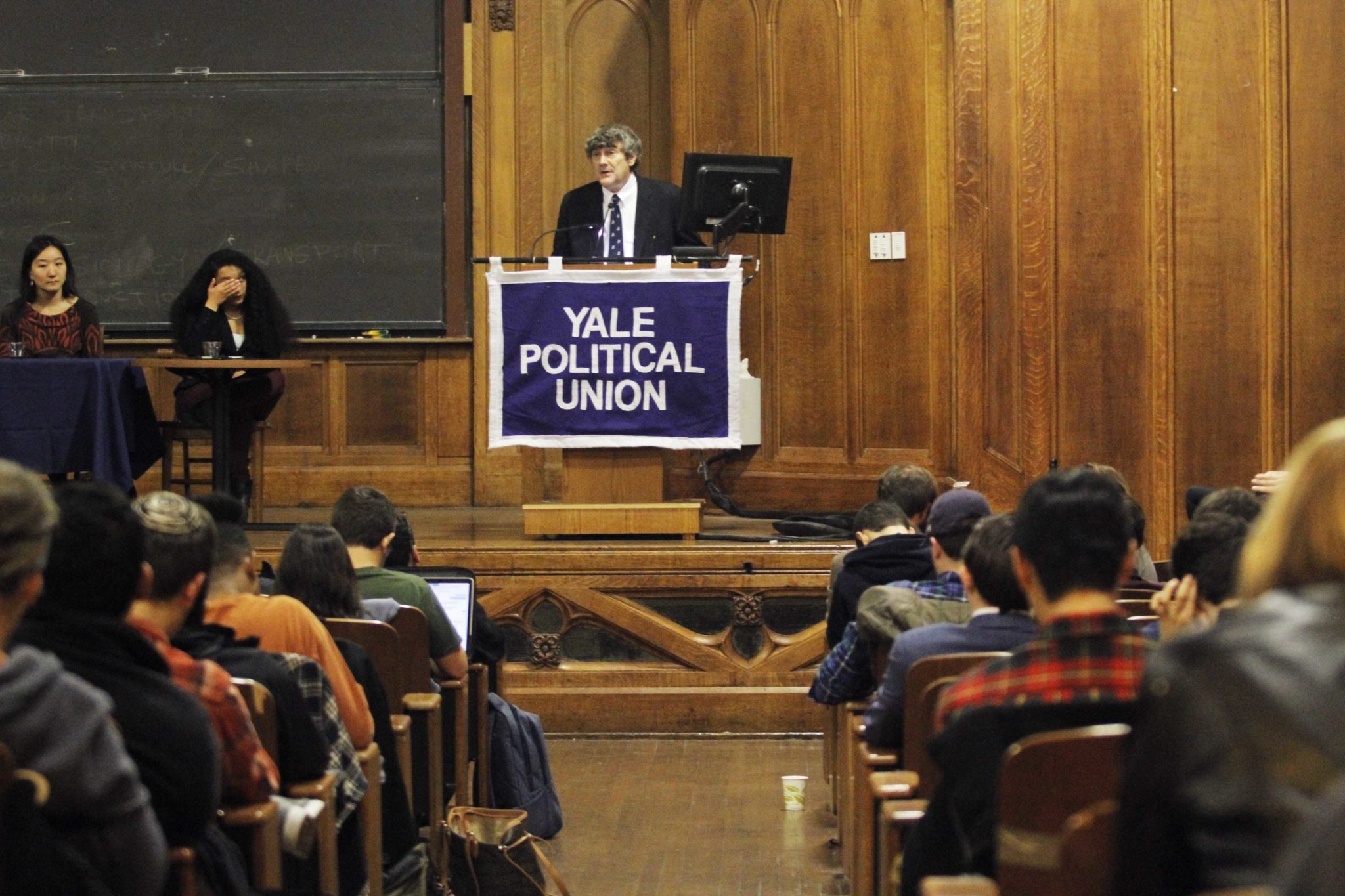
The Yale Political Union and Federalist Society for Law and Public Policy Studies co-hosted a debate Wednesday night that considered the ethical quandaries and legal implications which might result from a U.S. president stacking the Supreme Court with judges of a specific political leaning.
The debate followed a presidential election campaign during which the appointment of Supreme Court justices was a hot-button issue for both major candidates. The upset victory of President-elect Donald Trump has aroused debate on the political left and right over whether presidents should use the Supreme Court to influence policy making.
The debate featured a speech from Steven Calabresi ’80 LAW ’83, a professor at the Northwestern University School of Law and visiting professor at Yale Law School. In addition to serving in the presidential administrations of presidents Ronald Reagan and George W. Bush ’68, Calabresi also founded the Federalist Society, a conservative- and libertarian-leaning legal research organization. Calabresi also clerked for Supreme Court Justice Antonin Scalia.
“There are two different meanings that are sometimes given to the term ‘judicial activism,’” Calabresi said in his speech. “One is that judicial activism occurs when federal judges act to strike down a law or hold something unconstitutional. A restrained judge being the idea of a judge that does nothing is — in the view of the Federalist Party — incorrect. [A judge] should not hold unconstitutional law when they’re obligated to strike them out.”
Hisses filled the room when Calabresi criticized the Roe v. Wade Supreme Court decision, which extended the right to privacy to protect abortions. Calabresi went on to discuss the government’s power to prescribe rules for the entire nation.
He also compared compulsory federal health insurance to the government compelling people to buy President Barack Obama’s memoir or cars made in the United States. Calabresi concluded by siding against appointing “activist judges” who create new rights that are not in the constitution or failing to enforce constitutional limits.
After his speech, he fielded a series of questions concerning the constitutional rights of fetuses, commercial abortions and constitutional malleability.
The first student speaker of the night was Benito Flores ’20, who is currently unaffiliated with a party in the YPU.
“If we left change up to the state … it wouldn’t be very efficient,” Flores said in his speech. “You can’t just quickly change the fabric of what we’re doing. That’s why we have judges, who can respond to things faster and more often.”
Floor Leader of the Right Brian Cashin ’19 advocated against the appointment of activist judges. Cashin, a member of the Federalist Party, said the judiciary system exists in order to uphold the highest form of U.S. law. He argued that the judicial branch is nonrevolutionary and has a responsibility to uphold the constitutional framework.
“Judicial activism is a threat to rights,” Sam Adkisson LAW ’18 said in his speech. “Present times should make that a unifying principle even when everything else is not.”
Adkisson condemned activist judge appointments, especially given the current political climate. He added that constricted interpretations of the Constitution would protect individual rights of the political left, center and right.
Later in the debate, Kenneth Jackson ’17, a member of the Liberal Party, referenced the recent presidential election, claiming both candidates used the Supreme Court as a means to hide policy discontinuity.
The debate was held in Sheffield-Sterling-Strathcona Hall.







